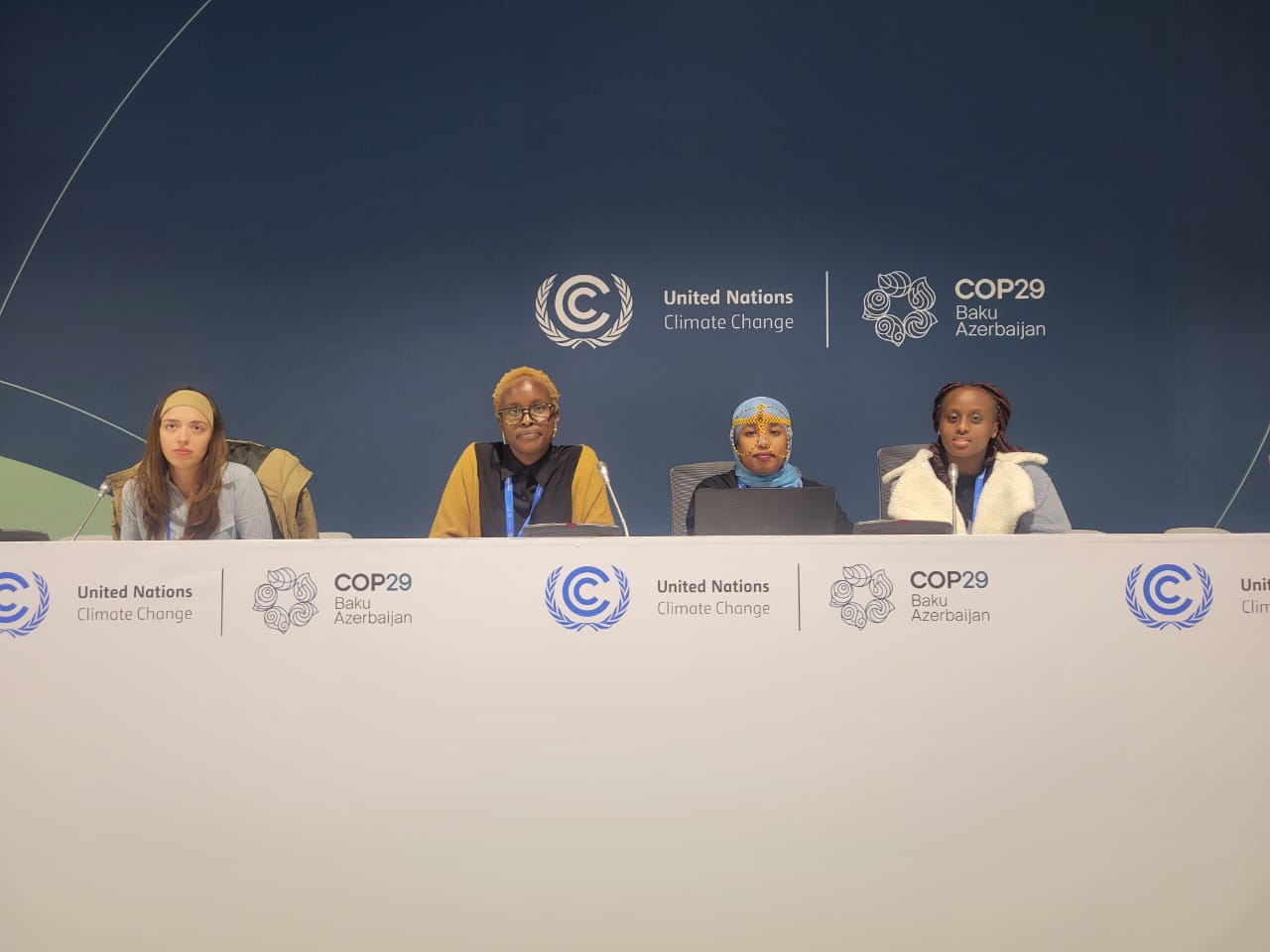Baku, Azerbaijan– COP 29 highlighted the growing disparity between the Global North and South in addressing the climate crisis. While Africa remains a minor contributor to global greenhouse gas emissions, it bears the brunt of climate change’s devastating impacts. This stark reality demands a shift in Africa’s approach to climate action, moving away from dependence on external aid and towards self-reliance and innovation.
From Dependency to Development
For decades, Africa has lived on the promises of climate funding from developed nations, pledges often laden with conditions and delays. These nations whose own economic prosperity was built on the back of fossil fuels now push Africa to embrace renewable energy while continuing to power their industries with coal and oil. This glaring double standard threatens to undermine Africa’s economic sovereignty and risks turning the continent into a laboratory for renewable energy experiments that serve foreign interests over local communities
Innovating for Resilience
Africa is brimming with potential to lead the charge in sustainable development. From investing in renewable energy infrastructure to promoting circular economies and indigenous climate solutions, the continent can redefine what a just transition looks like. Homegrown initiatives such as Kenya’s geothermal energy projects or Rwanda’s green urban planning models are examples of how Africa can build resilience from within. By focusing on localized solutions, Africa can not only reduce its vulnerability to climate shocks but also assert itself as a leader in global climate action. Moreover, African nations must unite in demanding greater accountability from developed countries to drastically reduce their emissions, rather than shifting the burden to developing regions.
Addressing the Social Dimensions
Climate change is not just an environmental issue, it’s a human one. In Africa, its impacts disproportionately affect women, indigenous communities, and public health systems. Women, who often bear the responsibility of providing for families, are hit hardest by droughts, floods, and food insecurity. Indigenous peoples, the stewards of Africa’s rich biodiversity, face displacement and loss of cultural heritage due to climate-driven land degradation. Africa’s climate strategy must integrate these social dimensions. Empowering women through education and resource access, protecting indigenous rights, and strengthening health systems are critical steps in building a climate-resilient continent.
A Vision for Africa’s Climate Sovereignty
COP29 has made one thing clear, Africa cannot entrust its climate future to the Global North. While international cooperation remains vital, true progress demands an African-led revolution in climate action. By rejecting dependency, embracing innovation, and centering its people on climate strategies, Africa can turn its greatest challenge into its greatest opportunity. The time is now for African nations to rise, united in their resolve to build a sustainable and equitable future. Africa has the power to lead the fight against climate change—not as victims, but as visionaries shaping a new global narrative where justice, equity, and resilience take center stage.

